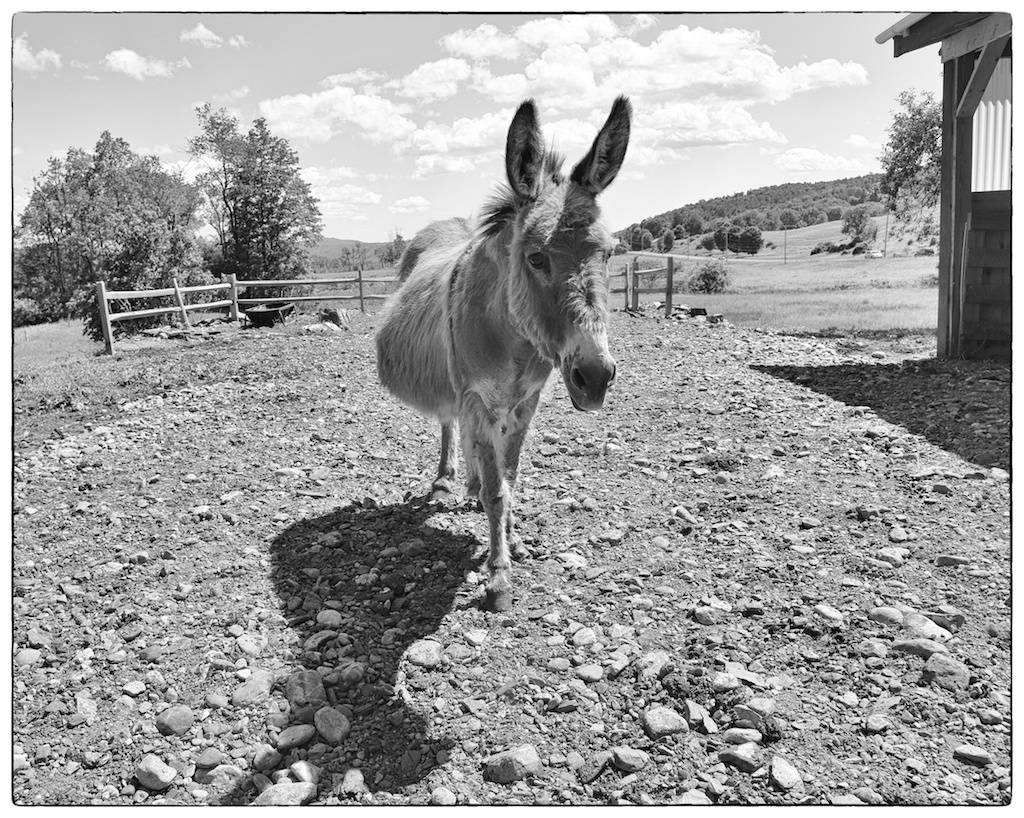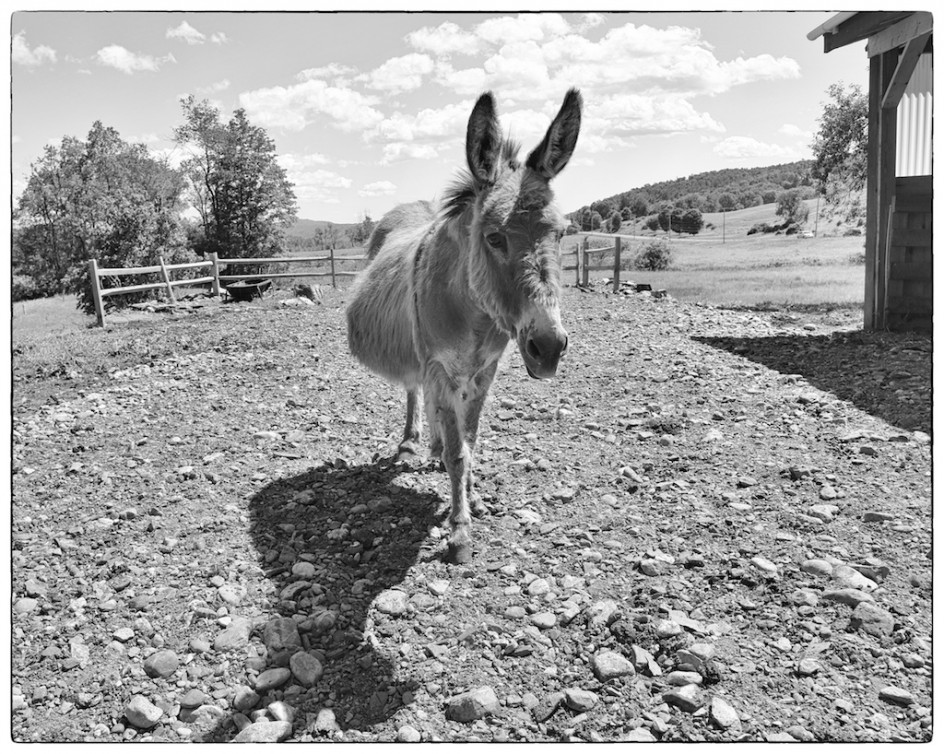Our moving anniversary celebration is moving again it seems, this time to New York City for one day to see the movie “Hannah Arendt.” Arendt, the late moral philosopher and author, was a significant influence on me and my life and writing. When I was a teenager, she flew to Jerusalem for the New Yorker Magazine to cover the trial of Adolph Eichmann, the architect of the “Final Solution” that sent nearly six million people, most of them Jews, to their death. In 1960, Eichmann was found hiding in South America by Israeli agents, kidnapped and brought to trial in Jerusalem. The trial mesmerized much of the world. Arendt’s brilliant reporting of the trial resulted in a controversial book, “Eichmann In Jerusalem,” denounced by many American Jewish leaders then and to this day.
The book advanced the notion of the “banality of evil,” the at-the-time shocking notion that one didn’t have to be brilliant or even intelligent to commit great evil, you could simply be morally dead, even small and banal. You can look up to understand evil, she wrote, or you can look down. In Eichmann she had been expecting a monster, but was instead shocked to find a clueless, even stupid bureaucrat who had no conception of what evil was, and had absolutely nothing revealing, intelligent or significant to say about it, not in many months of questioning and testimony. It was one of the most sensational trials in the history of the world, yet the criminal at the center of it was an empty shell, a lip-chewing bus driver. It wasn’t that he was just an anti-semite, Arendt wrote, Eichmann was a dull clerk moving trains and pieces of paper – and millions of people – around. He was, she found, morally dead.
I can’t begin to describe the impact her reporting from Israel had on me, a young Jewish teenager, aspiring to be a writer, bewildered by the holocaust that had engulfed my own family and everyone around me. How could they have done it? How could the world have let it happen? How could the Germans have slaughtered a million defenseless babies? How could Jews have let it happen? I understand now that there are no answers to these questions, not in my life time. Some things are simply beyond my grasp and the reach of even the greatest minds. But I still ask these questions, on a vastly smaller, perhaps more comprehensible scale. How could Simon happen? Why are we so blind to poverty? Why are we so kind to animals and so indifferent to the suffering of people? Arendt did not work miracles, she could not explain the scope of the holocaust, but for me, she came closer to any other writer I had read, any other thinker.
Arendt taught me to consider my decisions, they are the cornerstone of any moral person, they are the building blocks of life.
When my daughter Emma e-mailed me a few weeks ago that this movie was open in New York and nowhere else and was closing this Thursday I had this fantasy of doing down to New York on the train to see it and coming back in the same day. I didn’t see how it could work. When we cancelled the inn in Massachusetts we made plans to go to another inn tomorrow, this one in Vermont. Today Emma called to wish me Happy Father’s Day. We had a long talk, she seemed eager to take some time. She brought up the film again, said I could get it on CD. But it was there until Thursday, she said. Maria and I were driving in the car on the way to do some chores, get some food. Maria turned to me in the car. She seemed very clear, strong about it. Let’s go to New York, she said, you know you want to see the movie, you know you won’t get another chance, wouldn’t you love to see it with Emma?
Emma said she couldn’t get off from work on Monday but if we came on Wednesday, she’d love to come, go to lunch or dinner, see the movie. The rolling anniversary seemed to be shifting again. Maria and I didn’t really even need to speak. I pulled over to the side of the road, turned on the flashers, pulled out the Ipad, called the inn and moved the reservations to August, to my birthday. I went online and booked train tickets. I reserved three seats in the theater on Wednesday, the next to last day of the movie’s showing. There was a train at the right team leaving, one coming back when we wanted it to. Our house-sitter could come as easily on Wednesday as Monday, it turned out. Everything had fallen into place the way it does when things want to happen. The anniversary without a home had moved to New York City and wasn’t really an anniversary thing any more. Life happens, every day.
I am excited to see this movie, moral philosophy and the echoes of Hannah Arendt appear in so many of the things I write, so many of the decisions I make regarding my life and my life with animals. Her sense of ethics has helped me so often to build one of my own. Her voice spoke to me when I put Orson down, when I took Simon in, when we sent the old sheep off to die. When Maria and I decided to euthanize Rocky. To stand in one’s truth even in the face of angry mobs of people. Her outspoken independence. The strength of her convictions. Her idea that a moral decision is one in which one respects him or herself and is not driven by the opinions of others. When I was a kid living in New York City I went into one of her classes in the New School For Social Research in Greenwich Village, then the center of the intellectual world, now another corporate box-store showcase.
She was an imposing figure standing behind the lectern, moving around the room, speaking to hundreds of riveted and earnest young eyes, a powerful charismatic woman, one of the strongest women I will ever see. I can still hear her strong, heavily-accented voice – she was herself a refugee from Nazi Germany. A moral decision is yours, she said, it is the best decision you can make. Your decisions are yours, they belong to you, never let anyone take them from you. Conscience, she said, is a way of feeling, beyond reason and argument, beyond the opinions of others, beyond the dogma of people who put labels on themselves, of your knowing through sentiment and hysteria what is right and what is wrong.
It will be good to see her again on Wednesday, perhaps for the last time on screen. I miss her books, I wish for a world in which there were more moral philosophers and fewer commentators..We are going and coming the same day. I am seeing that it is connected to our anniversary after all, it is an anniversary gift. Its is a pilgrimage.


